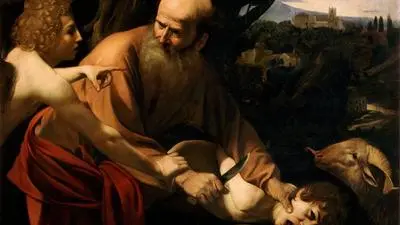Fear and Trembling in the 21st Century
Clare Carlisle
About the Course
Kierkegaard is a figure whose influence is felt throughout contemporary cultural discourse. On the one hand, he is known as the father of existentialism, an atheistic movement. On the other hand, he dedicated his life and work to faith and finding union with God. Can we reconcile suffering and faith? Why does Kierkegaard regard courage as a fundamental virtue? How can we love others, knowing full well that all love ends in loss?
In this course, Dr. Clare Carlisle guides us through Plato, Aristotle, Luther, Kant, and the Story of Abraham to reveal Kierkegaard’s unique take on the profound suffering integral to faith.
By the end of the course, you will have learned:
- The conflicting ethics of Luther and Kant.
- The origins of Kierkegaard’s existential crisis.
- The fundamental dilemma that those with faith face.
- Why anxiety, fear, and trembling define human life.
- How courage, not obedience, is the best means to express faith.
- Kierkegaard’s criticisms of the monastic life.
As part of the course, there are in-video quiz questions to consolidate your learning, suggested further readings to stimulate a deeper exploration of the topic, discussion boards to have your say, and an end-of-course assessment.
About the Instructor
-
Clare Carlisle
Dr. Clare Carlisle is a Senior Lecturer in Philosophy and Theology at King’s College London, as well as a columnist for The Guardian. She is well known for her writing of philosophical articles for a general audience.
Dr. Carlisle’s work focuses on religion and the philosophical contributions of Kierkegaard and Spinoza. She is the author of numerous publications and three books about Kierkegaard.
Course Syllabus
-
Part One: The Art of SacrificeCan unquestioning, irrational obedience to religious authority have value? Carlisle examines dangers and dogma.
-
Part Two: Breaking with TraditionDoes faith demand obedience or courage? How does a feminine perspective reframe the debate about obedience?
Suggested Further Readings
Contemporary Works:
- Carlisle, C., Philosopher of the Heart: The Restless Life of Søren Kierkegaard, (London: Penguin, 2019).
- Carlisle, C., Kierkegaard’s Philosophy of Becoming: Movements and Positions, (Albany: SUNY Press, 2005).
- Evans, C. Stephen, Kierkegaard: An Introduction, (Cambridge: Cambridge University Press, 2009).
- Lippitt, John, Routledge Philosophy Guidebook to Kierkegaard and Fear and Trembling, (London: Routledge, 2003).
- Westphal, Merold, Kierkegaard’s Concept of Faith, (Grand Rapids: Eerdmans, 2014).
Primary Sources:
- Luther, M., The Freedom of a Christian, trans. Mark D. Tranvik, (Minneapolis: Fortress Press, 2008).
- Kant, I., Groundwork of the Metaphysics of Morals, trans. Mary Gregor, (Cambridge: Cambridge University Press, 2012).
- Kierkegaard, S., Fear and Trembling, trans. Alastair Hannay, (London: Penguin, 2003).
- Kierkegaard, S., The Sickness Unto Death, trans. Alastair Hannay, (London: Penguin, 2004).
- Kierkegaard, S., Either/Or, trans. Alastair Hannay, (London: Penguin, 1992).


